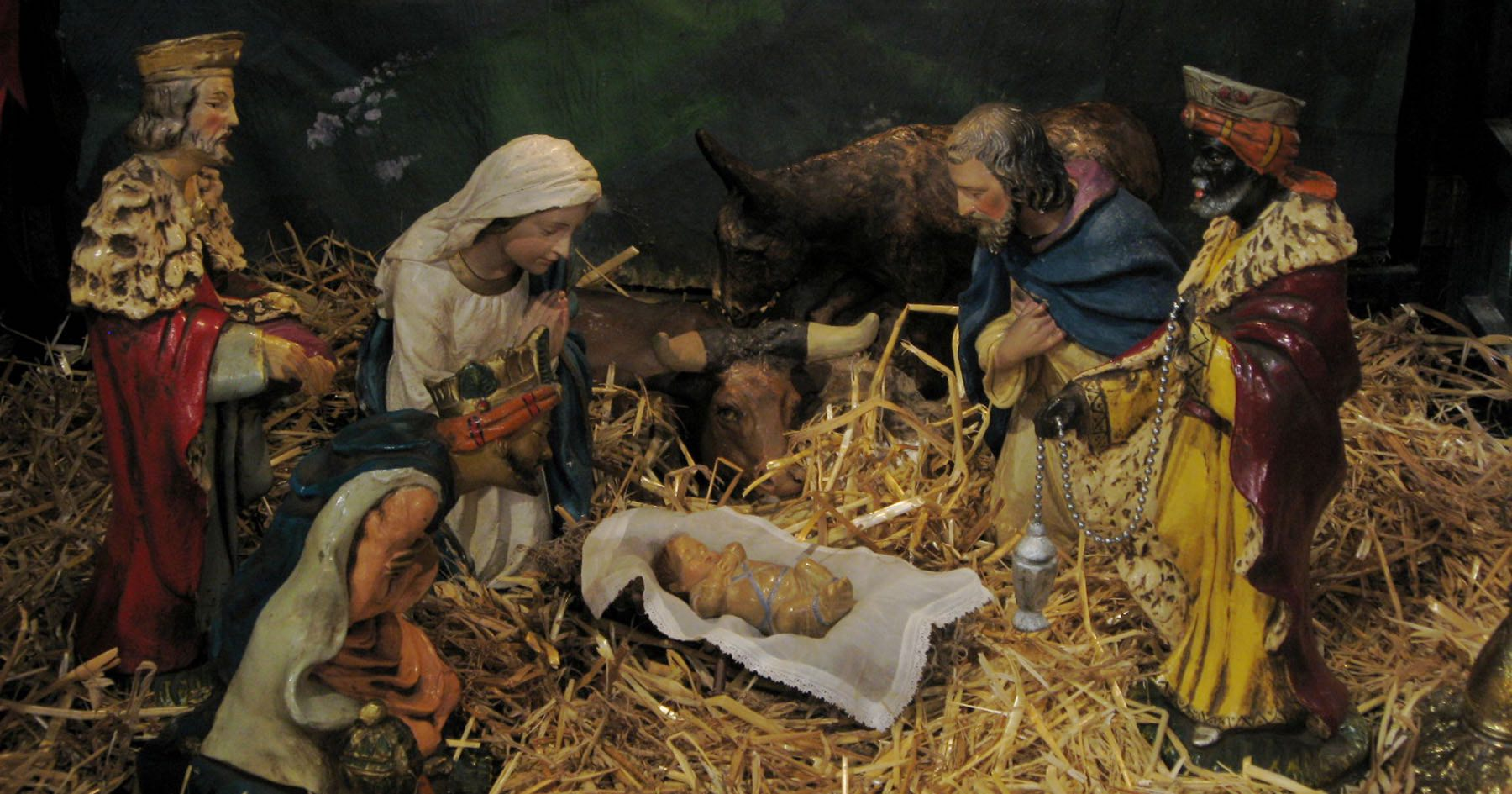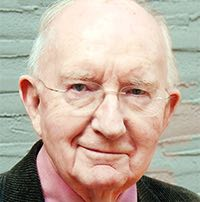William Blake once wrote that it would be wonderful “to hold infinity in the palm of your hand and eternity in an hour.” Many years later, another English poet John Betjeman did just that in his poem Christmas. In the simplest of language, he expressed the infinite depths of meaning in what we Christians call the incarnation, the coming into the world of the divine in human form. Listen to him:
And is it true? and is it true?
This most tremendous tale of all.
Seen in a stained-glass window’s hue,
A baby in an ox’s stall?
The maker of the stars and sea
Become a child on earth for me?
No love that in a family dwells,
No carolling in frosty air,
Nor all the steeple shaking bells
Can with this single truth compare,
That God was Man in Palestine
And comes today in Bread and Wine.
There you have two wonderful contrasts. First, a baby in an ox’s stall becomes the maker of the stars and seas. Then, we encounter the long-ago Jesus of Palestine in the timeless sacrament placed in our hands at eucharist.
I sometimes think that one of the problems of the Christian faith today is that we have become anaesthetized to its wonder through being overly familiar with it. For years now, I have found myself on a kind of quest to discover and to treasure moments when someone succeeds in capturing what I once heard Michael Ramsay, then Archbishop of Canterbury, call “the story and the glory” of Christian faith. The story, he said, is so simple it can be told to a child. The glory is so boundless that the greatest of philosophers cannot fully probe its depths. For me, John Betjeman’s deceptive simplicity captures the profundity.
Another such moment of realization. I recall standing in the dean’s stall of Christ Church Cathedral, Vancouver, finding myself deeply moved as a full cathedral sang an old Welsh carol, and I realized that the words had captured both the story and the glory in language immensely powerful yet utterly simple.
All poor folk and humble,
All lame folk who stumble,
come haste ye and be not afraid;
for Jesus our treasure,
whose love passes measure,
in lowly poor manger is laid.
And he shall reign ever,
and nothing shall sever
from us the great love of our king;
His peace and his pity
Shall bless his fair city;
His praises we ever shall sing.
In the first verse, the tiny child lies in the manger. In the second, he has become the Lord of time itself, ruling an everlasting kingdom. For me there are other such moments. I remember listening to a young soloist sing that lovely carol “I wonder as I wander out under the sky.” Halfway through the third stanza I noticed the shift from the earthly to the heavenly, from utter simplicity to deep mystery.
When Mary birth’d Jesus ’twas in a cow’s stall
with wise men and farmers and shepherds and all,
but high from God’s heaven a star’s light did fall;
the promise of ages it then did recall.
Again, I heard the haunting qualities of contrast. First, the village girl who would for millions of people become Queen of Heaven, then, we find our common humanity among farmers and shepherds, before we are suddenly borne away into the vast surrounding ocean of the stars. Once again, the story and the glory.
Over the years, there have been other moments seized before they vanished from memory, but then a bouquet can only be so big! A last moment/memory that captures both the story and the glory: back in the ‘60s, Thomas Merton wrote a poem he entitled Carol:
God’s glory now is kindled
gentler than low candlelight
Under the rafters of a barn:
Eternal peace is sleeping in the hay,
And Wisdom’s born in secret
In a straw-roofed stable.
Notice the beauty of the thought that even a candle can be the bearer of God’s eternal light, that a wooden manger carries a human child who is the embodiment of eternal peace, and in the shadows of a stable, the voice of divine wisdom speaks God’s eternal truth.
Maybe we should spare a moment to taste again those immortal images of Blake. What he said really applies to the whole world of worship. To worship is “to hold infinity in the palm of your hand and eternity in an hour.”
A blessed Christmas to you and those whom you love.




